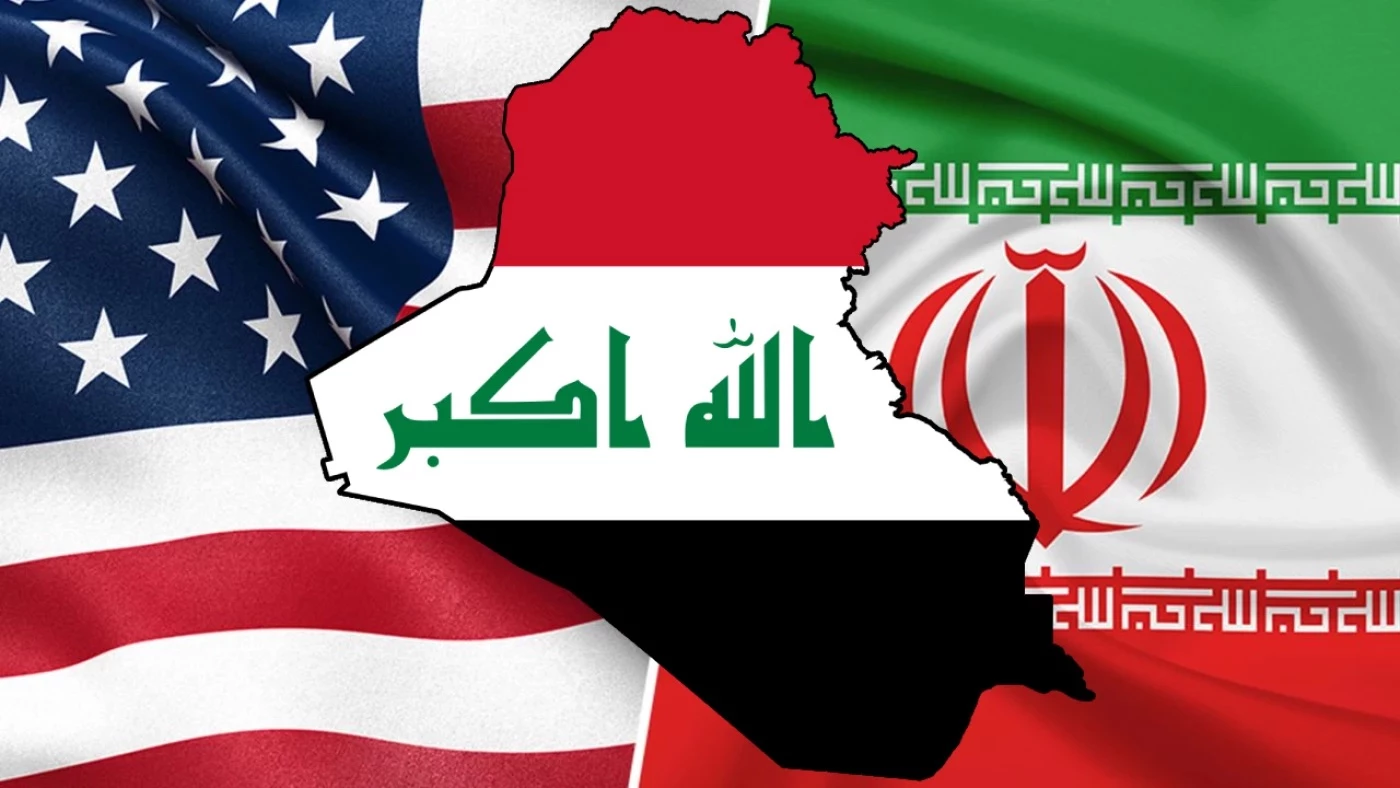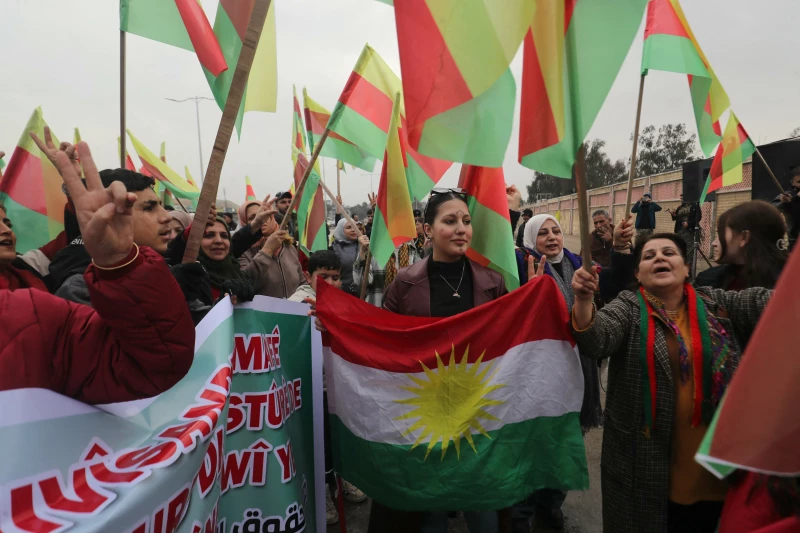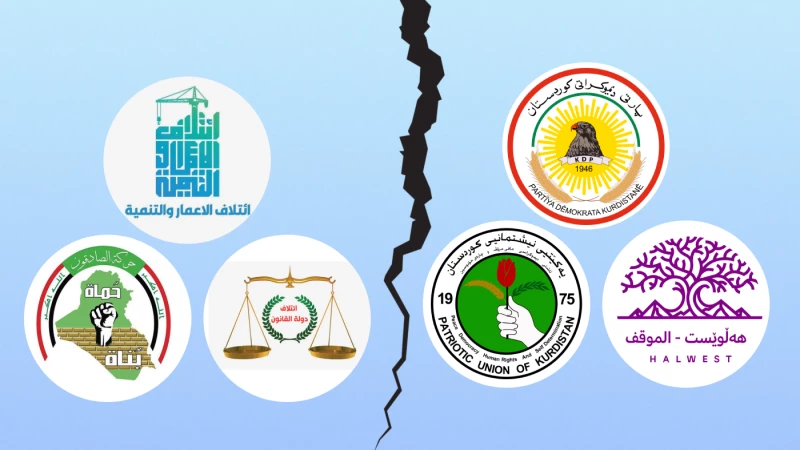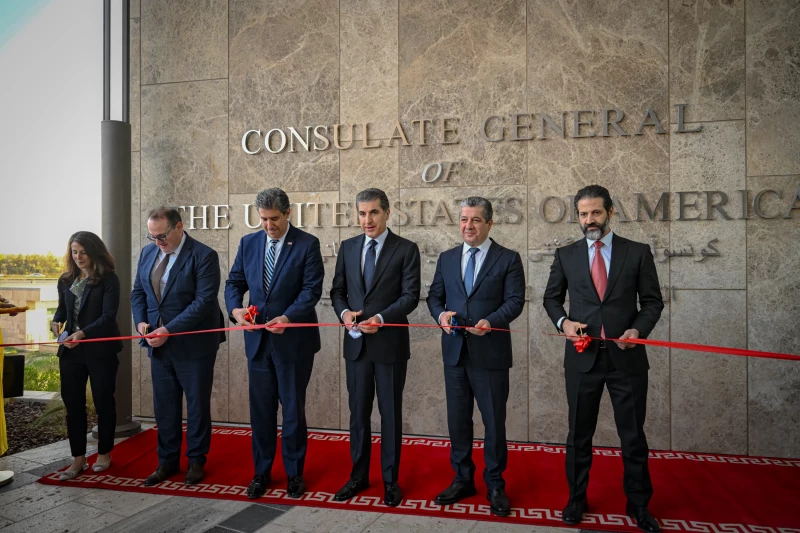As the United States and Iran sit down for a new round of negotiations in Oman, Iraq looms as one of the countries likely to be most affected by the outcome. For years—particularly since the early-2010s—US policy toward Iraq has been tethered to its policy on Iran. That linkage remains firmly in place under the Trump administration, as reflected in recent phone calls between senior US officials and Iraqi Prime Minister Mohammed Shia’ al-Sudani. The message has been clear: Cut trade and energy ties with Iran and crack down on Iran-backed militias in Iraq.
But the core of the matter is this: What exactly is on the negotiating table?
If the US is pursuing a Libya-style approach—total dismantlement of Iran’s nuclear program, as favored by Israel and some in the Trump camp—then we are looking at a very different scenario than if it’s a revamped JCPOA.
Equally critical is whether more contentious issues—such as Iran’s missile program and its use of proxy militias—are on the table, as outlined in the White House’s “maximum pressure” memorandum on Iran from early February. The talks' trajectory will depend heavily on whether Washington and Tehran are willing to engage on these fronts—and how much flexibility they each bring.
If Iran’s regional proxy network becomes part of the negotiations, then the fate of the Iraqi armed factions under Tehran’s thumb will come under direct scrutiny. Would Iran be willing to scale back its influence in Iraq if the pressure mounts to existential levels? Possibly. This could take the form of cutting funding and arms to those groups by both Tehran and Baghdad, or reassigning their members to less controversial roles—like local policing or firefighting, as some have proposed. But if Tehran insists these groups are "autonomous" actors in their national contexts and disavows formal links, and if Washington insists otherwise, the talks could derail.
That failure could bring the specter of a joint US-Israeli military operation back into the spotlight—with Iraq once again caught in the crosshairs. Reuters has quoted Iraqi sources suggesting militias are prepared to disarm. But The Times reported that Iran has for the first time transferred long-range missiles to Iraq. Such reporting, while starkly contradictory, is not unusual in such moments of high tension and anticipation.
So far, Iraq has largely avoided fallout from the regional upheaval sparked by Hamas’ October 7 attack on Israel. However, this time could be different. A collapse in US-Iran talks might turn Iraq into one of the primary theaters in any military confrontation. Iran, under duress, will likely activate its militia allies across the region—including in Iraq—to alleviate pressure. With US troops in Iraq, those militias already have targets within reach. The leaders of these armed factions are sending mixed signals, hedging for either war or peace.
In light of all this, Iraq’s position grows increasingly precarious. The Baghdad government and moderate Shia forces want no part in a US-Iran showdown, but they may have little choice or control over the course of events given the presence of unruly militias beholden to Tehran. Iraq is especially vulnerable to economic pressure.
Should Washington decide Baghdad is falling short, it could cut off the flow of dollars from Iraq’s global oil revenues—a move that would strike at the heart of Iraq’s economy and financial system. The threat is compounded by falling oil prices, worsened by Trump-era tariffs, and now further weakening Iraq’s 2025 budget, which already assumed a per-barrel price of $70 but is currently at low $60s. US sanctions on banking, energy, or political figures could follow, potentially paralyzing Iraq’s electricity sector, especially with summer’s high demand around the corner.
If the talks fail, Iraq could be pulled into the eye of the storm. Since 2021, the size of the public sector has ballooned from 3.2 million to 4 million employees. Yet rising expenses have far outpaced revenue—even in boom years like 2022–2024—with an annual deficit of around $48 billion dragging down the state. Now, with oil prices slumping, Iraq is edging toward a fiscal cliff. The economic repercussions of the failure of US-Iran talks can be monumental for Iraq.
Conversely, a breakthrough in US-Iran negotiations could bring both significant benefits and drawbacks for Baghdad.
First, it would mean avoiding conflict on Iraqi soil—bringing a major sigh of relief to the country.
Second, a détente between Iran and the US would boost Iran’s regional stature—which, due to its deep ties with Baghdad’s ruling Shiite establishment, would inevitably strengthen Iraq’s own standing with its neighbors.
Third, it would also open the door for stronger ties with Washington, unlocking economic opportunities. Fourth, a deal would also undercut a core unstated justification for the US military presence in Iraq, possibly paving the way for a Trump-led withdrawal. That in turn could tilt the balance of power internally, further empowering Baghdad’s Shiite factions vis-à-vis Sunni and Kurdish players who are wary of Iran’s influence in the country.
Additionally, a US-Iran agreement could also lift restrictions on Iraq’s energy imports, enabling it to generate more desperately needed electricity until it develops the infrastructure for energy self-sufficiency.
Overall, a relationship unencumbered by Iranian interference would allow the US and Iraq to engage more directly and productively. However, on the flip side, Iran’s reintegration into the global economy could drive down oil prices, dealing a blow to Iraq’s economy.
The ongoing visit of a large US-Iraq Business Council delegation and the numerous energy and investment deals point to growing American appetite for a deeper economic footprint in Iraq, aligned with Trump’s “America First” push and search for new global markets for US companies and their goods and services.
Where things go from here depends on the outcome of the talks between Tehran and Washington. If the US manages to decouple Iraq from Iran’s grip—whether by neutralizing militias or weaning Baghdad off Iranian energy—it could help Iraq take more control of its own future. But if talks collapse, and tensions escalate into conflict, Iraq may once again become another battleground between the US and Iran; an outcome many Iraqis never asked for, but can’t avoid.
The views expressed in this article are those of the writer and do not necessarily represent the position of The New Region's editorial team.



 Facebook
Facebook
 LinkedIn
LinkedIn
 Telegram
Telegram
 X
X


